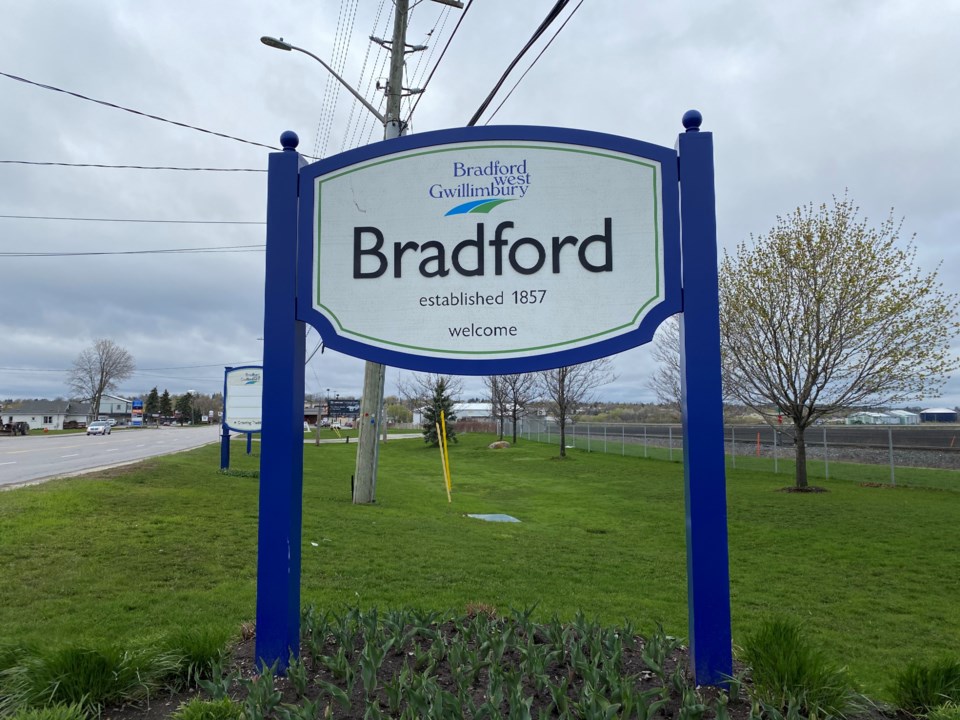BWG Council held a lengthy virtual session on Tuesday night – the final meeting, with the exception of a Special Meeting of Council on June 22, before the July break.
In the meeting, council received a series of reports from the town’s finance department, including the Consolidated Audit of the 2020 financial statements of the town, library board, and BWG’s portion of the Police and Marsh Board.
Sue Bragg of Baker Tilly Canada presented the audited financial statements, and praised Town staff for “making the audit a priority, despite COVID.”
In all, it was a positive picture, that showed the town “moving in the right direction” – especially in bringing down debt.
Bragg noted that BWG’s Capital and other revenues in 2020 had been budgeted at $22.369 million; the actual amount by year’s end was $44.756 million.
“The amount we received from Development Charges (DCs) was significantly higher than the previous year,” and building permit revenues also increased, she noted, reflecting a rebound in growth and construction activity.
In 2019, the municipality received only $6 million in DCs, paid on new development. In 2020, DCs totalled nearly $30 million.
Growth and Supplemental taxes (on new buildings added to the tax rolls for the first time) contributed to higher-than-expected tax revenues, and the $1.256 million in COVID Relief funding received from upper-tier governments helped offset other revenue losses caused by pandemic closures, particularly in recreation and leisure – as did lowered expenses.
The town’s Reserves were also higher than expected. A number of projects budgeted for 2020 were delayed or deferred due to COVID, and the money left unspent.
The news wasn’t all positive. Unpaid taxes increased from $3.163 million in 2019, or four percent, to $5.345 million in 2020 (seven percent).
Bragg explained that the increase reflected not only the financial struggles of some residents, but council’s decision to defer payment due dates for tax installments, giving residents more time to pay.
She was reassuring about the town’s Accounts Receivable. “The (Provincial) Ministry considers anything under 10 percent ‘low risk’,” she said, noting that the town’s percentage was in line with other Ontario municipalities during the pandemic.
Bragg also summarized BWG’s accumulated debt. The municipality has a long-term debt load of $35 million in debentures, as well as other long-term liabilities that include a $55 million advance from developers as part of Early Payment Agreement 3, that is to be repaid by the Town.
In all, BWG had liabilities totalling $115,537,096 in 2020, offset by financial assets of $32.7 million (cash, taxes receivable, trade receivables), leaving a net liability of $82.8 million. That means that the percentage of net debt, compared to revenue sources, was 148 percent – which is considered “High Risk.”
Fifty percent or less is considered “Low Risk.”
However, Bragg pointed out that in 2019, the Town’s net debt was even higher, at $98.4 million.
“While we still show 148 percent, whereas the provincial average is 28 percent and ‘Low Risk’ is considered 50 percent, it is important to note that that figure last year was 267 percent, so we’re certainly moving in the right direction,” she said.
She pointed out that the debt went towards building infrastructure needed for growth and development, and that as growth continues, the debt will be further offset. “It will recover as development came, and we’re certainly seeing that happen now,” Bragg said.
In 2020, the town’s net Tangible Capital Assets (town assets, including land, that are used to carry out operations) were valued at $549.82 million, compared to $528.66 in 2019. Net, the value was over $404 million resulting in an ‘Accumulated Surplus’ – “The difference between all of your liabilities and all of your assets,” explained Bragg - of $468 million.
That included a tax surplus of nearly $1.2 million in cash. Of that, $246,000 was generated by the Library and is retained by the Library Board; the town’s share was $979,555.
In approving the audited financials, council also approved a plan to allocate the tax levy surplus, with just over $252,000 carried over into Operating (including $238,783 representing the unspent portion of the COVID relief grant that will be used to offset future COVID-related expenses).
The remainder will be transferred to the Capital Replacement and Capital Expenditures Reserves.
“I think we found our way to reduce some of our debt,” said Deputy Mayor James Leduc at the end of the presentation. “I think we’ve managed our finances quite well.”
Mayor Rob Keffer agreed, noting that the Town had taken steps to assist residents during the COVID pandemic, by offering $5000 grants to business, delaying tax payment due dates, and waiving penalties and interest on late payments. He asked Treasurer Ian Goodfellow if there were any concerns, regarding the increase in tax arrears in 2020.
“They weren’t unexpected,” replied Goodfellow, noting that “our rate of arrears still compares very well to other municipalities,” and that the situation has improved.
“The numbers are improving, certainly tracking better in 2021,” he said, predicting a return to normal levels of arrears by the end of the year.
Mayor Keffer summed up, “That’s pretty good results, for how concerned we were at the start of the year, and wondering how we were going to manage our finances,” during the pandemic.



